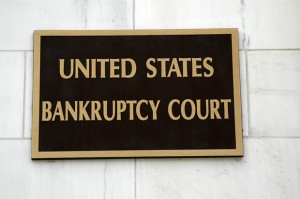 Chapter 13 bankruptcy reorganizes debt. Debtors commit to making a payment each month to a trustee for three-to-five years. In order to be successful in a Chapter 13 case, debtors have to learn how to budget their money. Payments are based upon the debtor’s disposable income. This means that the more money the debtor earns the higher his plan payment.
Chapter 13 bankruptcy reorganizes debt. Debtors commit to making a payment each month to a trustee for three-to-five years. In order to be successful in a Chapter 13 case, debtors have to learn how to budget their money. Payments are based upon the debtor’s disposable income. This means that the more money the debtor earns the higher his plan payment.
Chapter 13 debtors have to learn to live within their means. Debtors aren’t allow to incur new debt without permission from either the court or the trustee. As a result, debtors cannot use credit cards while they are in bankruptcy. They can only spend what they actually earn each month, which drastically changes financial planning. For example, debtors in bankruptcy must learn to save. They need to establish a financial cushion so that if an unexpected expense arises, such as needing to repair a vehicle or air conditioner, they won’t find themselves short of money.
In order to establish that financial cushion, it is a good idea to write down a budget and then start cutting expenses. Look at each and every expense and see if it can be reduced. Consider modifying a mortgage in order to get a better interest rate. Get quotes annually for automobile and homeowners insurance to see if better pricing is available. Cut out unnecessary expenses. For example, cancel a home phone line if you already have a cell phone and downgrade cable television service to a less expensive plan. Increase the temperature on the thermostat and turn on the fans. Fans are much more efficient that central air conditioning. Turn off lights when not in the room and unplug appliances when not in use. Many appliances continue to use electricity even when not turned on. Once you make the decision to reduce expenses you will start seeing ways to save money everywhere. Living on a budget will make your much more likely to succeed in a Chapter 13 bankruptcy case.